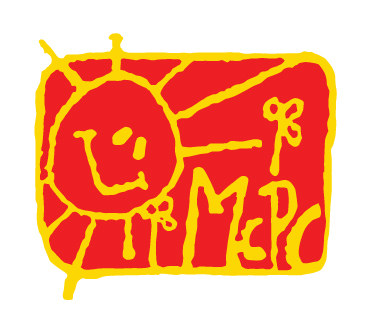Our Philosophy
SELF-DIRECTED, Play-based & HANDS-ON
MCPC provides an expansive play-based curriculum, with new activities and reliable favorites available each day (sand box, outdoor play structures, dress up, etc.). Our curriculum emphasizes play and hands-on experience. We create a stimulating and inclusive learning environment that balances sensory, cognitive, and fine- and gross-motor activities. Everyday there are opportunities for both free play, independently directed by the children themselves, and guided play facilitated by teachers and parents at different times of the day. Children are given high amounts of autonomy to decide how they want to spend their time during free choice periods
Our programs are based on four key principles:
1
Developmental Model of Learning
We emphasize free-choice play and hands-on experience that satisfies children's needs, interests and abilities.
For the majority of the time at preschool, children are offered various play spaces where they can choose to spend their time. The art room, snack table, front yard (including outdoor art and a reading nook), and indoor playroom are always open from the start of school at 9am until the first community circle gathering at 11am. Play setups tend to be left out for the entire week so that children have an opportunity to return to them to continue and build on their themes and play.
Our free-choice play and children’s familiarity with our spaces allows them to travel easily between activities when they need a break or have decided they have worked through a project to completion. It also allows them to invite their classmates to play along the way; teachers and working parents tend to provide sportscasting-like dialogue in order to help children notice common interests and that they are friends.
2
parental involvement including resources for parents!
Daily interaction supports learning for both parent and child. To promote parental involvement, we offer parent education on a variety of child-rearing topics throughout the year. Examples of resources from recent years include:
Attending to Microaggressions, the Basics by Lane Ayre, PhD.
How to talk to kids about really hard things in ways that are honest, maintain connection, and manage fear (theirs and ours) by Corey Cohen, LCSW PPSC
Book Night for Parents - Parenting from the Inside Out by Dan Siegel M.D. and Mary Hartzell, M.Ed.
“Beyond Recognition” - film screening about the development of the Sogorea Te' Land Trust
Read more about co-op preschool commitments, benefits, and hear parent testimonials on our Parent Participation page.
3
Focus on Conflict Resolution
We believe that taking the time to help work out conflict between kids is time well spent. As a community, we learn and practice that what’s good and helpful is when we are able to help the children with the big feelings that come up when they run into a disagreement with others. This could look like two children wanting the same toy, one child accidentally bumping into another, or disagreeing on how to play an organized game. Instead of rushing through to a solution, we practice helping children name their feelings (this can look like providing options that children identify with, talk about their bodies, etc.) so they begin to make a connection for themselves. We move through in a calm, collected way and communicate with others what happens with us. Kids get the message that anger is a feeling, frustration is a feeling that we can manage and work through and calm down to talk about. It’s a problem that we solve together. We also learn that we can do a simple check in with our friends, a simple “are you okay?” and “what can I do to help?” This helps children be able to name what they need in a loud and strong voice, whether it’s they need something like an ice pack, move away for some space or for that friend to try to be more careful the next time. This is an important process for children to come full circle with their feelings in order to be more present in their activities at school and with friends.
4
CELEBRATING DIFFERENCES, RECOGNIZING COMMONALITIES
An underlying principle at MCPC is to hold space and appreciation for differences as children begin to recognize them. This could be a difference of opinion, of background, of family demographics, etc. This sort of belief is not just for the children - as parents working closely together we work on these same principles to be able to hold space for others.
There is an integration and diversity aspect to this - our projects done on an annual basis integrate diversity and celebrate the uniqueness of each child. We talk about the ways holidays are celebrated differently and also in our own homes.
Additionally, we also recognize that some differences are not by choice — the effects of systemic racism on people of color in our society are apparent in the past and ongoing in the present. Our anti-bias orientation allows children to explore the differences and similarities between people, in a safe and open environment. See more on our page on Diversity.

